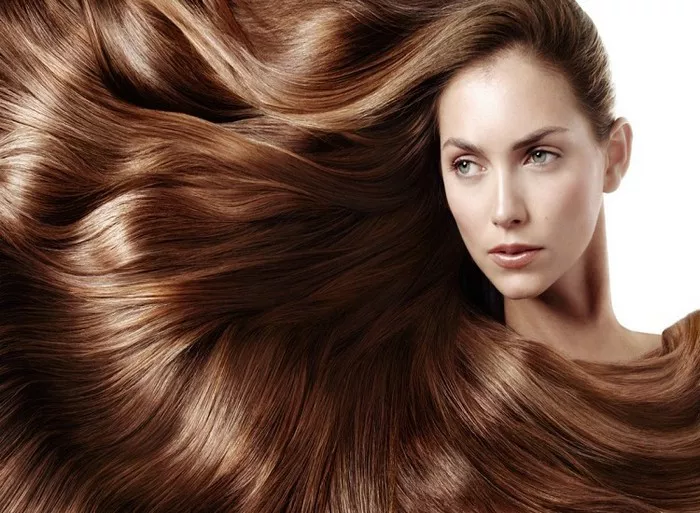Deanna Denham Hughes can still vividly recall the catchy jingle that would forever alter the course of her life: “Just for meeeee,” she sings, playfully elongating the final syllable before breaking into an embarrassed laugh. This jingle, promoting the Just for Me hair relaxer, featured young Black girls adorned with oversized earrings, rhythmically rapping about “body and shine” while luxuriously flipping their silken locks in slow motion. As a child growing up in the ’90s, Denham Hughes aspired to emulate these glamorous figures, and that meant taming her thick, unruly Afro.
From the tender age of 5, Denham Hughes would regularly sit at her kitchen table, draped in a towel, while her mother meticulously applied Just for Me cream to her hair. Her mother, a Jamaican immigrant, was keenly attuned to societal judgments and sought to ensure her children were presentable. Denham Hughes, in her quest to blend in, eagerly complied. In the third grade, when her previously relaxed hair began to grow out, she experimented with two-strand twists. Regrettably, a classmate cruelly dubbed her “Medusa,” prompting her swift return to the familiar embrace of Just for Me. The pungent relaxer emitted an aroma reminiscent of gasoline and induced a burning sensation on her scalp. Denham Hughes endured this discomfort until it became unbearable, as if pain were the sole assurance that the product was working. After the application was complete, she would gaze into the mirror, her hands irresistibly drawn to her now-silken tresses. “I just wanted to wake up and pop out of bed like, ‘Oooooh, here I aaaaam,'” she exclaims theatrically, arms outstretched.
A consummate performer, Denham Hughes has mastered the art of wearing a cheerful facade, regardless of her internal turmoil. Recently, she has battled depression, estrangement from her family, and insomnia following six rounds of chemotherapy for stage-three ovarian cancer. Her initial diagnosis in March 2022 left her bewildered, as there was no familial history of the disease, and she was otherwise a picture of health at 33. Why had she fallen victim to a cancer typically associated with postmenopausal women? A potential answer emerged in the fall of the same year. While scrolling through her Instagram feed, Denham Hughes stumbled upon a video of a bald woman who asserted that her cancer was linked to chemical hair straighteners. This discovery sent her spiraling into a Google search frenzy, where she unearthed articles linking relaxers not only to cancer but also to fibroids and infertility. Wiping away a tear from behind her glasses, she reveals her sense of betrayal, saying, “I shouldn’t be grappling with the repercussions of a product I used at the tender age of 5, especially not at 33.”
Over the past 11 months, countless women like Denham Hughes have begun associating their health challenges with the use of hair straightening products, fueled by recent research from the National Institutes of Health. In October, a study tracking 30,000 women over a decade identified a connection between the use of straighteners and an elevated risk of uterine cancer. Frequent users faced a roughly 4 percent likelihood of developing the disease by age 70, compared to about 1.6 percent among those who had never used such products — representing more than a twofold increase in risk. The lead author of the study, Alexandra White, an epidemiologist at the NIH specializing in environmental risk factors for cancer, expressed surprise at the data, noting, “In my area of research, we’re accustomed to observing a 10 percent risk increase.” White’s study, conducted in collaboration with five colleagues at the NIH’s National Institute of Environmental Health Sciences, built upon prior research that had already linked hair straighteners to breast and ovarian cancers.
While White’s most recent study did not establish a definitive causal link, she acknowledges the possibility that other factors may have contributed to cancer development in her subjects. Nevertheless, her report underscores that chemicals commonly found in straighteners, including parabens, phthalates, and metals, can permeate the scalp. These endocrine-disrupting substances have the capacity to bind to or obstruct hormone receptors, causing imbalances in estrogen and progesterone levels, which can subsequently lead to breast and gynecological cancers. Some straighteners also contain formaldehyde, a recognized carcinogen, which can be released when heat is applied in salons. Alarmingly, Black women exhibit the highest rate of relaxer use among any demographic group, while also facing an almost twofold higher risk of mortality from uterine cancer compared to white women, constituting one of the most pronounced racial disparities in cancer statistics.


